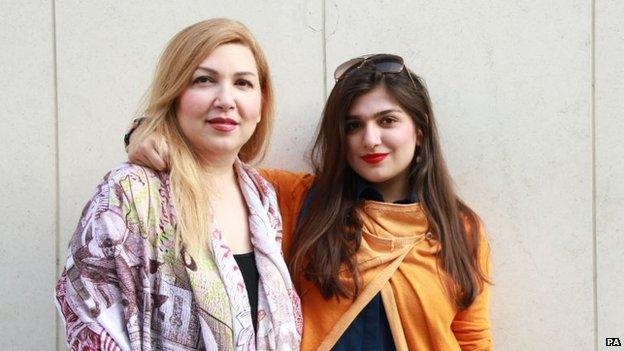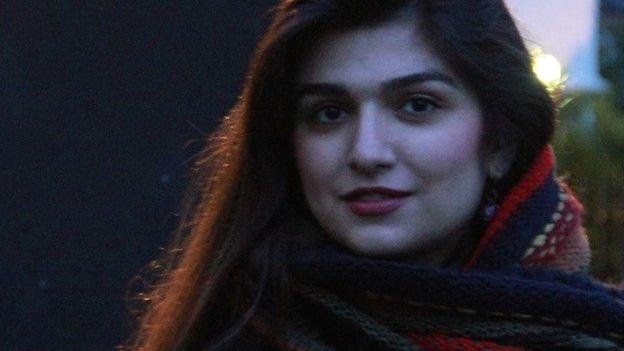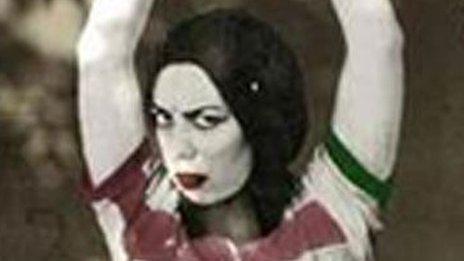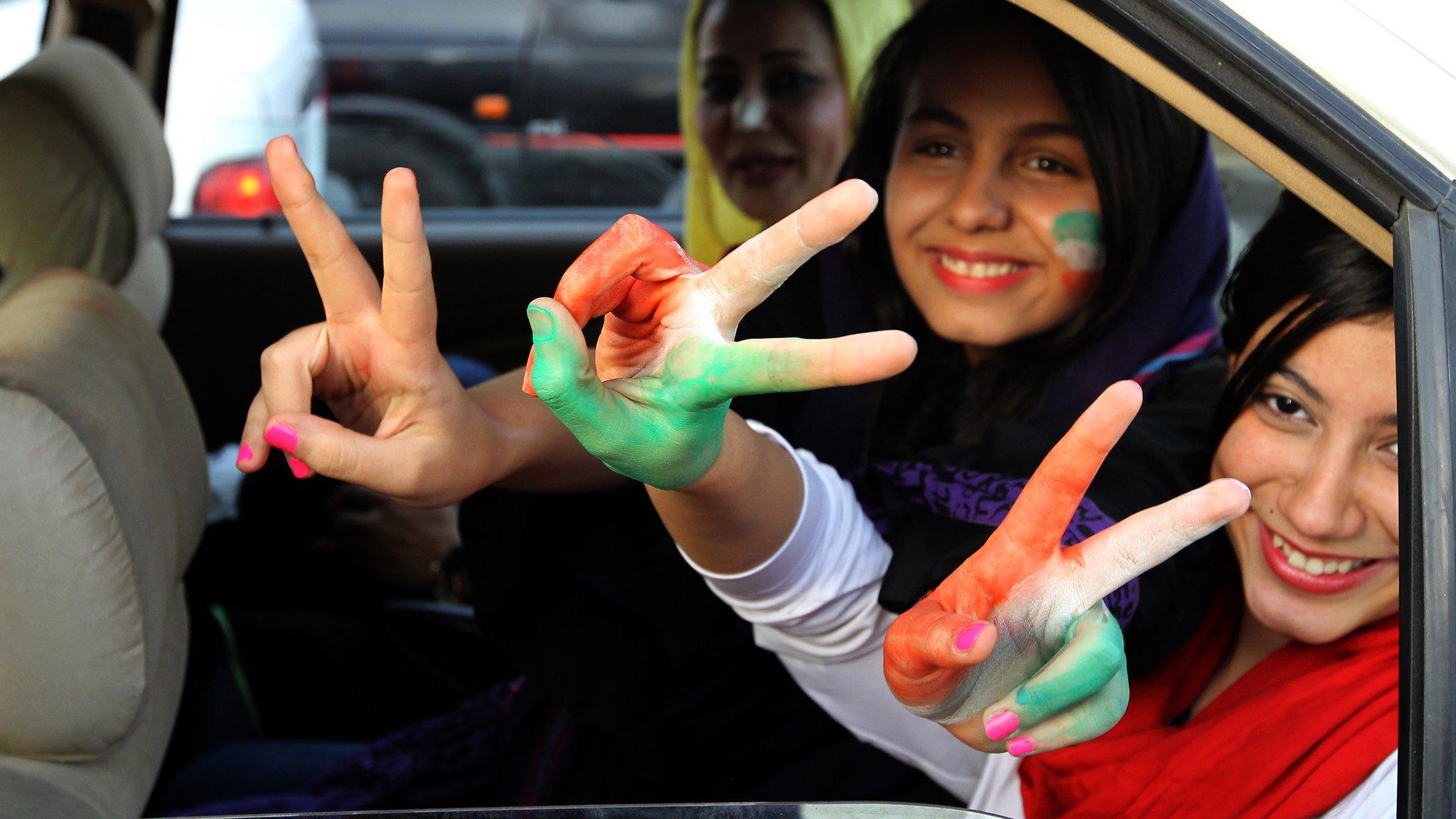Iran activist Ghoncheh Ghavami 'on hunger strike'
- Published
Newsnight spoke to Ghoncheh Ghavami's brother, Iman in September
A British-Iranian woman held for spreading anti-regime propaganda at a men's volleyball game is on a second hunger strike, her family says.
Ghoncheh Ghavami was protesting against what she called her illegal detention, her mother told the BBC.
Ms Ghavami's lawyer has said he saw court documents showing she had been sentenced to a year in prison.
However, prosecutors have not confirmed Ms Ghavami's sentence, leaving her case in limbo, her family says.
Iran banned women from volleyball games in 2012, extending a long-standing ban on football matches.
The Iranian authorities have argued that women need protection from the lewd behaviour of male fans.
'Anti-regime propaganda'
Ms Ghavami's mother, Susan Moshtaghian, told BBC Persian TV that her daughter was striking against her continued detention without a court order, and the judiciary's decision to keep her case in limbo.
On Sunday, lawyer Alizadeh Tabatabaie said he had been shown court documents that said Ms Ghavami was found guilty of spreading anti-regime propaganda.

Ms Ghavami's mother Susan (left) said her daughter had started a new hunger strike
However, the Central Revolutionary Court has returned her case to the prosecutor's office without confirming the sentence or explaining the delay in her case, BBC Persian TV correspondent Kasra Naji reports.
Ms Ghavami, 25, was part of a group of women who tried to watch Iran play Italy in a match on 20 June.
The women were arrested and allegedly beaten before being freed. Ms Ghavami was rearrested later and subsequently put on trial.
She launched a hunger strike in October after being held in isolation cells.
The UK's Foreign Office has said it is concerned about her case.
"We have concerns about the grounds for this prosecution, due process during the trial, and Miss Ghavami's treatment whilst in custody," it said in a statement.
Ms Ghavami is both a British and Iranian national. However, dual nationality is not recognised in Iran.
The British government recognises dual nationality.
However, under international law, external, countries cannot offer formal diplomatic protection to their nationals if they are in a second country where they also hold nationality.
- Published2 November 2014

- Published13 September 2014

- Published14 July 2014

- Published8 November 2013
